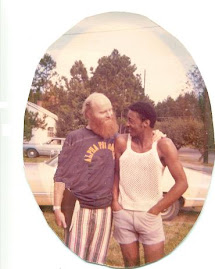Today’s Lections
The Collect
Almighty God, whose blessed Son was led by the Spirit to be tempted by Satan: Come quickly to help us who are assaulted by many temptations; and, as you know the weaknesses of each of us, let each one find you mighty to save; through Jesus Christ your Son our Lord, who lives and reigns with you and the Holy Spirit, one God, now and for ever. Amen..
This collect focuses on sin as something we consciously choose to do because we are tempted, in our weakness, just as Satan tempted Jesus.
The Baptist church nurtured me in the same primary focus, and provided me with special lists of sins which I should carefully avoid growing up. I should not smoke, drink, or chew. I should strive to be 100% Christian as measured by the items that I was asked to check on my weekly envelope: such as reading my daily bible readings, praying before meals, attending services……
Never was I asked whether I participated in unfair white privilege in our segregated society. Never was I asked to examine my behavior to discover ways that others were diminished as a price of my advancement.
The culture of today's sonorous collect, like the culture of the Baptists in my childhood, makes it easy to become absorbed with sin as some kind of slip up or weakness, but not as a systemic error, such as injustice.
Bertrand Russell wrote a powerful expose of The Harm That Good Men Do.. I recommend it as Lenten discipline.
Genesis 9:8-17
Genesis envisions the use of massive natural forces for destruction, specifically the flood in which only those on Noah’s ark were saved, as the provenance of God alone. The writer of Genesis had no idea of global warming nor of global dimming.
God repents and makes a covenant with human beings never again to try to destroy the earth, “the waters shall never again become a flood to destroy all flesh.” The rainbow reminds God, and us of God‘s covenant, but it should bring no comfort to us unless we too pledge to halt our prodigal abuse of creation and learn to live more simply, respecting ecological balance.
Otherwise, the waters will rise, and the sun will dim. The temperatures will increase and kill of much of the life now possible on the planet, and all very soon, according to climate experts. See What’s up with the Weather (Nova and Frontline)
The forests and the water have changed dramatically since the progenitors of most of us stopped spending much time outdoors.
Psalm 25:1-9
let me not be humiliated,
nor let my enemies triumph over me.
Growing up gay in a small Alabama town I wondered why straight boys ever needed to pray that prayer. It seemed like someone sneaked it in just for me. Straight boys had no enemies just for being straight, nor did any gays have an interest in triumphing over them. Mainly we hoped they would not find us, and if they did, we hoped they would leave us alone.
Many in the church who condemn gays today stress that we are abusing the bible in reading into it God’s affirmation of us. “Remember, O Lord, your compassion and love, for they are from everlasting.” How everlasting are they if they are not available to lgbts?
Even if we are wrong in believing that loving someone of one’s own gender is not a sin, are we wrong to plead to God to ignore our sins? Are straights the only ones who will be hear d when they pray, “Remember not the sins of my youth and my transgressions; remember me according to your love and for the sake of your goodness, O Lord”?
1 Peter 3:18-22
Peter proclaims that the purpose of Christ’s death and resurrection was to pay for our sins “once for all”! Unless you're gay, lesbian, bisexual or transgendered? Hello! Just what part of "once for all" is so difficult to understand?
Mark 1:9-15
This short passage from Mark functions like a brief commentary at the front apron of a stage while the crew is changing the props in the dim light behind. The props for John -- a simulation of the River Jordan and the dove a Jesus’ baptism) move off stage while John himself is arrested. At another place, the stage is readied for Jesus’ entry and almost immediately he will be driven into the wilderness. This is a "Preview of the Coming Attractions" for Lent.
Most of us already know the story, but that familiarity does not diminish our enthusiasm for re-enacting the sequence for another 40 days.
See also




